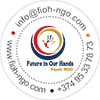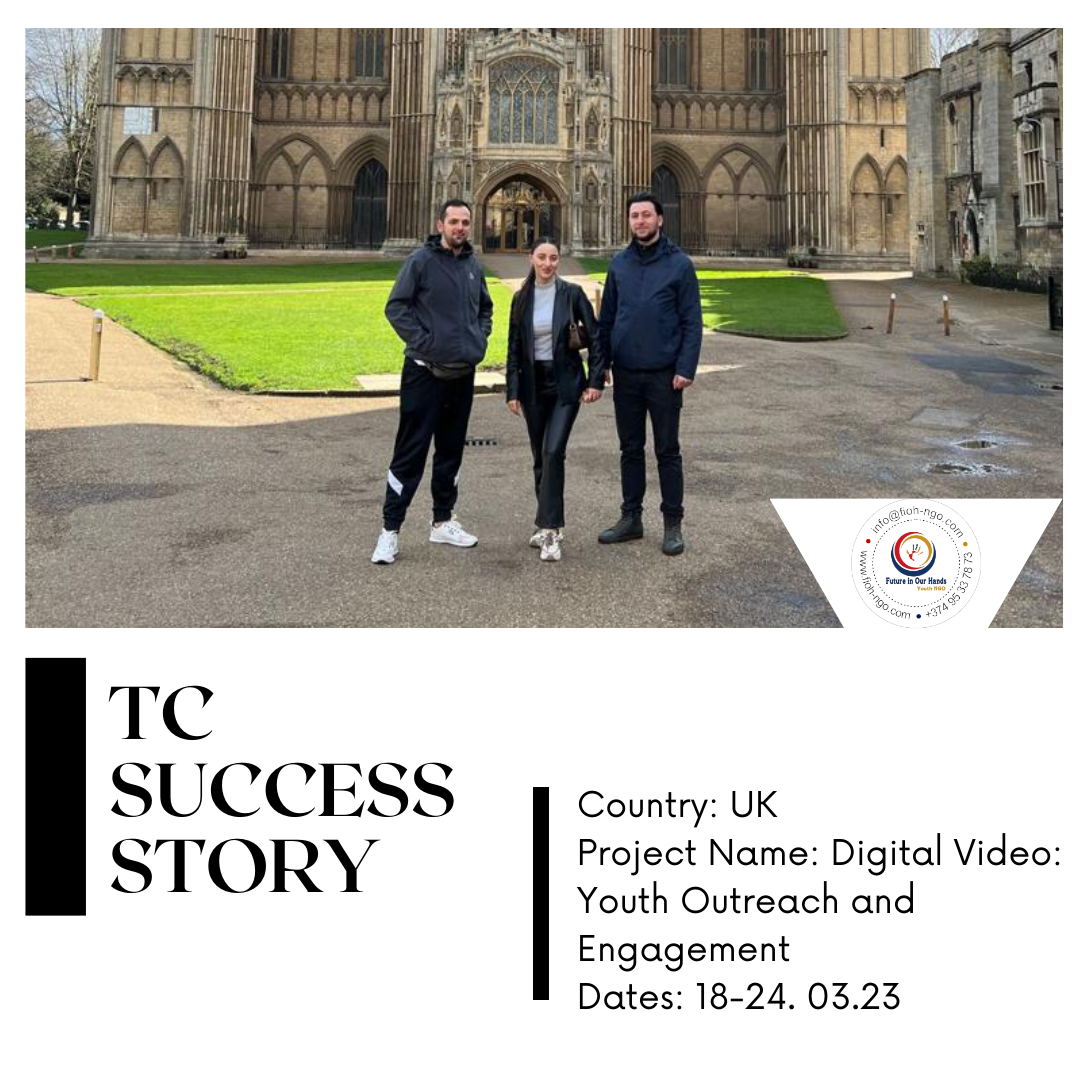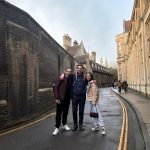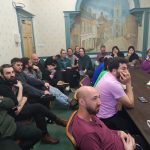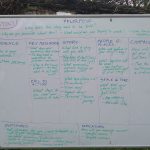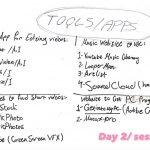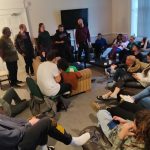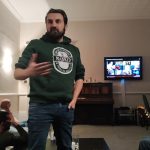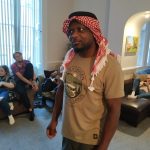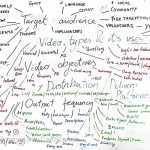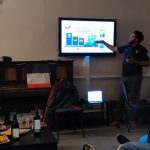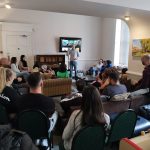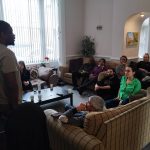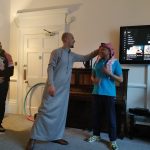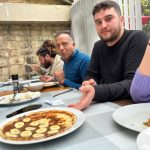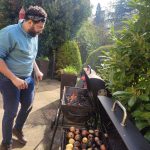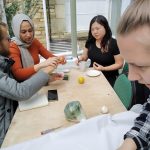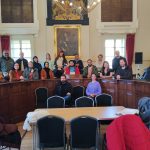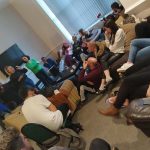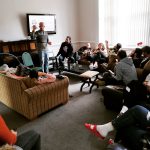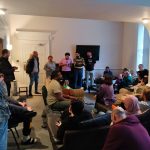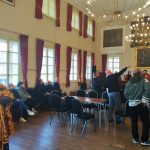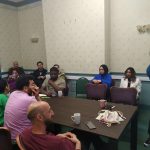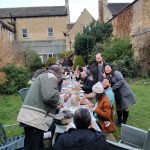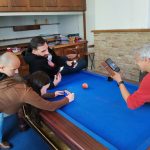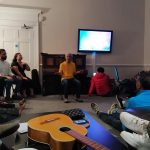The Erasmus+ training course designed to empower youth workers and youth leaders in the use of digital video recording has been a great success, with participants learning a range of valuable skills and techniques to better engage marginalized young people.
Throughout the course, participants gained a deep understanding of how to effectively use digital video as a tool for youth work, including best practices for planning, filming, editing, and sharing videos. They learned how to use a variety of different video recording equipment and software, and also explored strategies for engaging young people in the creation and sharing of digital videos.
One of the most valuable aspects of the training course was the opportunity for participants to share their knowledge and experiences with one another. Through group activities, workshops, and discussions, participants were able to exchange ideas, learn from one another, and build a sense of community and collaboration.
The multicultural family style setting of the training course also played a crucial role in the learning experience. By working closely with participants from different countries and cultures, participants gained a deeper appreciation for intercultural cooperation and the importance of sharing positive values. They also enhanced their problem solving, communication, and teamwork skills, which will be valuable assets in their future work with young people.
Overall, the Erasmus+ training course was a highly beneficial and enriching experience for all participants. By learning how to use digital video in their youth work, and by developing their intercultural communication and collaboration skills, participants are now better equipped to engage and empower marginalized young people in their communities.
More about the sessions:
– Group brainstorming to identify the target audience, video types, and their uses, defining video objectives, and identifying video distribution and delivery platforms and frequency to better reach and engage young people.
– A simulation exercise in international teams – teams explored and presented micro video campaign strategies building on the learnings from the previous session.
– Group brainstorming and discussion on practicality, feasibility, and legalities (e.g. photo consent forms, disclaimers we later learnt to put at the end of videos, copyright, creative commons attribution).
– Group discussion and brainstorming session to discuss available tools and apps.
– Creative discussion about video fundamentals – we talked about light, compositions, framing, time-lapse and even shared a few hacks how to keep the phone steady. (Also, notably great tips from Luka as well as Enzo’s memorable presentation on the TV screen supported by a live translation from Arabic language to English)
– Learning about the story board canvas and how to structure a video message.
– Creating videos in international teams – we did creative apple shoots as an initial practice process, and then the final project videos. The videos turned out quite amazing and very creative!
– Learning from presented examples of videos by various participants and teams. We exchanged examples of videos of best practice by teams who had something prepared before coming to the project. Not all teams had prepared presentations. However, throughout the week more participants came up with videos to show to the group.
– We had very impressive cultural presentations from participants who came forward. Some that particularly come to my mind include Israeli team’s presentation of Shakshuka – this was a new experience for many of us and is also a very special presentation done at a time when there is an egg shortage in the UK. Multiple team members had to go and buy eggs due to purchasing restrictions put on eggs, so we are really grateful for this effort and presentation!
– French team’s presentation of wine, biscuits, snacks and a very informative video. The French team also led the barbecue lunch on the first day, which was a spontaneous decision to make a really nice and social welcome lunch for everyone on the first day. Notably, they also prepared insanely delicious crepes (with Nutella and bananas) for everyone to sample.
– Jordanian team presented in their traditional outfits, allowing participants to sample their customs in more than one way – participants could try and wear a part of the traditional clothing, participate in their traditional dance, and sample their traditional sweets and coffee. Also, the Jordanian team made a beautiful dish for the team involving chicken and their special recipe of rice and 7 kilograms of yoghurt!
– Anand from the UK team presented an introduction to emotional regulation and tools – quick and easy techniques to calm one’s nervous system. Arvind presented a session to help participants to connect with their true purpose and bring their true self and energy into their life and work. He also presented a book he’s written that has tasks in it to help achieve more positive outcomes in life – a copy of which was gifted to a member of the Croatian team, he was also teaching participants how to use a hula hoop as an exercise method. Prem and Ragu with other members of the UK team presented amazing Asian style dishes – dhal, and also a unique Asian flavoured pasta in white and veg sauce, both cooked with delicious Indian favours and spices.
– We also had an unexpected invitation by the local Council to visit the Town Hall in Stamford where they offered everyone a private tour. This was very unusual as they do not offer free tours for large groups and do not offer tours on the day that we needed. So we are very grateful to the local Council for their invitation and flexibility. In addition to the historical town of Stamford, this was a great cultural learning opportunity and a trip down the history lane.
– An interesting learning for some of us was – that we can actually eat raw white mushrooms from the supermarket! We have always cooked them before and never ate them raw. It was also nice to learn from the French team about barbequing and charring whole onions in skins and to peel them before eating – that was unexpectedly very delicious! Evidently, learnings happen in many ways…
Learning process is a very individual process and a reflection of ourselves. Every one of us will notice different things around us or observe the same thing differently. Therefore those who want to learn will learn in various ways and will always find an opportunity to learn. Ability to learn is a skills and one of the Youthpass competencies is “learning to learn”.
